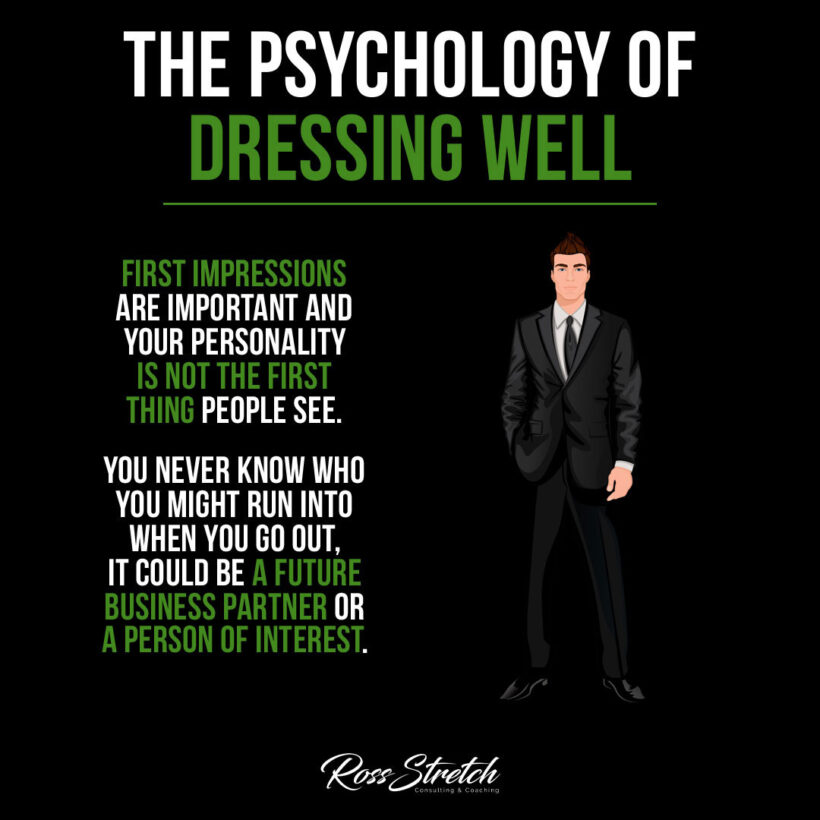Introduction
Have you ever met someone for the first time and instantly formed an opinion about them? That’s the power of first impressions. Before you even say a word, the way you look—your clothes, grooming, and posture—tells a story. Dressing well is not just about fashion; it’s a tool that helps you communicate who you are and what you stand for. Let’s explore why what you wear matters and how it can impact both your personal and professional life.
Why First Impressions Are So Important
People form opinions quickly—often within seconds. These first impressions are mostly based on what they see. Studies show that people make judgments about trustworthiness, confidence, and competence based on appearance alone. For example:
- Imagine a Job Interview: Two candidates arrive for an interview. One is dressed in a neat suit, with polished shoes and a confident stance. The other is in casual jeans and a wrinkled shirt. Both might have the same skills, but who do you think leaves a better impression? The candidate in the suit likely appears more professional and prepared, influencing how the interviewer feels about them.
Dressing well is about making sure your appearance matches the message you want to send. It tells others that you respect yourself and the occasion, whether it’s a job interview, a networking event, or even a casual meeting with friends.
What Your Clothing Says About You
Clothing is more than fabric; it’s a way to show who you are. Here’s how different aspects of style communicate messages:
- Colors Matter: Colors can change how others feel about you. Dark colors, like black or navy, are often seen as powerful and professional, while bright colors, like yellow or green, feel friendly and approachable. Choosing the right color for the right occasion can subtly shift how people respond to you.
- Fit and Style: Well-fitted clothes make you look sharp and organized. Loose, baggy clothes can sometimes look sloppy or careless. A good fit shows you pay attention to details, which can make you seem more trustworthy and focused.
- Style Choices: Whether you dress casually or formally, your style says something. Classic and simple styles often suggest reliability, while trendy or unique styles can show creativity and openness to new ideas.
By understanding these details, you can make clothing choices that reflect your personality and align with your goals.
Simple Tips for Dressing with Purpose
Dressing well doesn’t mean spending a lot of money. It’s about making smart choices and being mindful of details. Here are some easy tips:
- Invest in Basics: You don’t need a huge wardrobe. A few timeless pieces—like a crisp white shirt, a dark blazer, and well-fitted jeans—can go a long way. These basics make it easy to look polished with minimal effort.
- Focus on Fit, Not Brands: Expensive clothes don’t automatically make you look better. The fit is what matters most. Choose clothes that complement your body shape, even if they’re not high-end brands.
- Dress for the Occasion: Consider where you’re going and who you’re meeting. Formal events call for classic attire, while casual outings allow for a more relaxed look. Adjusting your style to the setting shows that you’re thoughtful and adaptable.
- Pay Attention to Grooming: Clean hair, trimmed nails, and polished shoes complete your look. Little details like these can make a big difference, showing that you care about your appearance and respect others’ time and attention.
Dressing Well Boosts Confidence
Looking good can actually make you feel good too. This concept, called “enclothed cognition,” suggests that our clothes affect our thoughts and feelings. When you dress well, you’re likely to feel more confident and act with purpose. For example:
- Picture a Networking Event: If you’re wearing an outfit that makes you feel confident, you’ll be more likely to start conversations and introduce yourself to new people. This confidence can lead to better interactions and stronger connections.
When you feel good about your appearance, it shows in how you carry yourself. Standing taller, making eye contact, and smiling all come more naturally when you’re dressed in a way that makes you feel confident.
Beyond Looks: The Benefits of Dressing Well
Dressing well goes beyond first impressions. Here are some additional benefits:
- Boosts Productivity: Many people feel more focused and productive when they’re dressed well, even if they’re working from home. Wearing professional attire can create a mindset shift, helping you stay motivated.
- Encourages Connections: A polished look can make people more comfortable approaching you. This is valuable in professional settings where forming relationships and networking can lead to new opportunities.
- Supports Long-Term Success: Consistently dressing well reinforces your personal brand. Over time, people will associate you with qualities like professionalism, trustworthiness, and confidence.
Conclusion
Dressing well isn’t about following trends or buying designer clothes. It’s about showing up as the best version of yourself. Your outfit can influence how others perceive you and even how you feel about yourself. So next time you’re deciding what to wear, think about the story you want to tell. Dressing with purpose can open doors, build connections, and help you succeed in both personal and professional settings.


